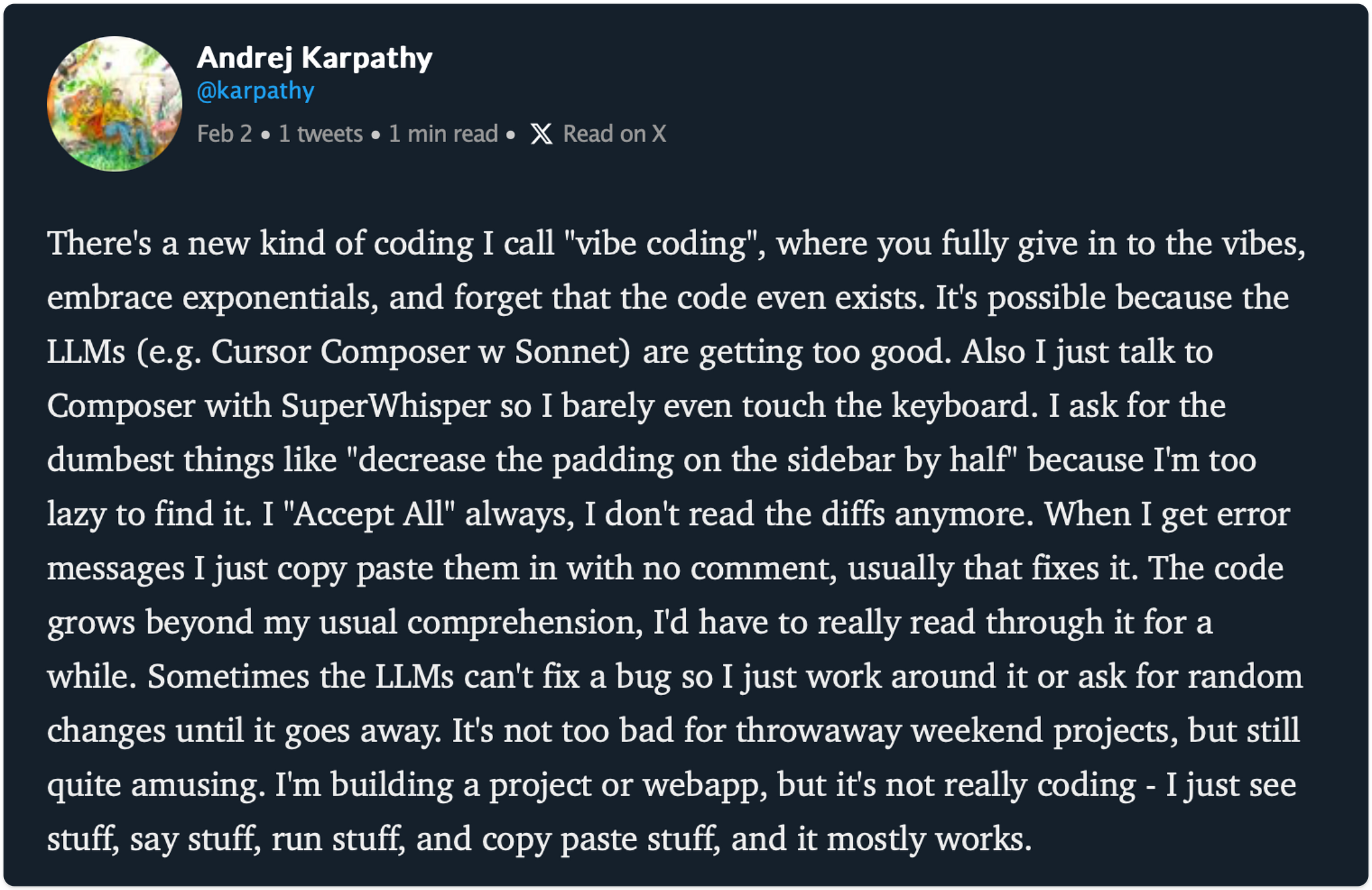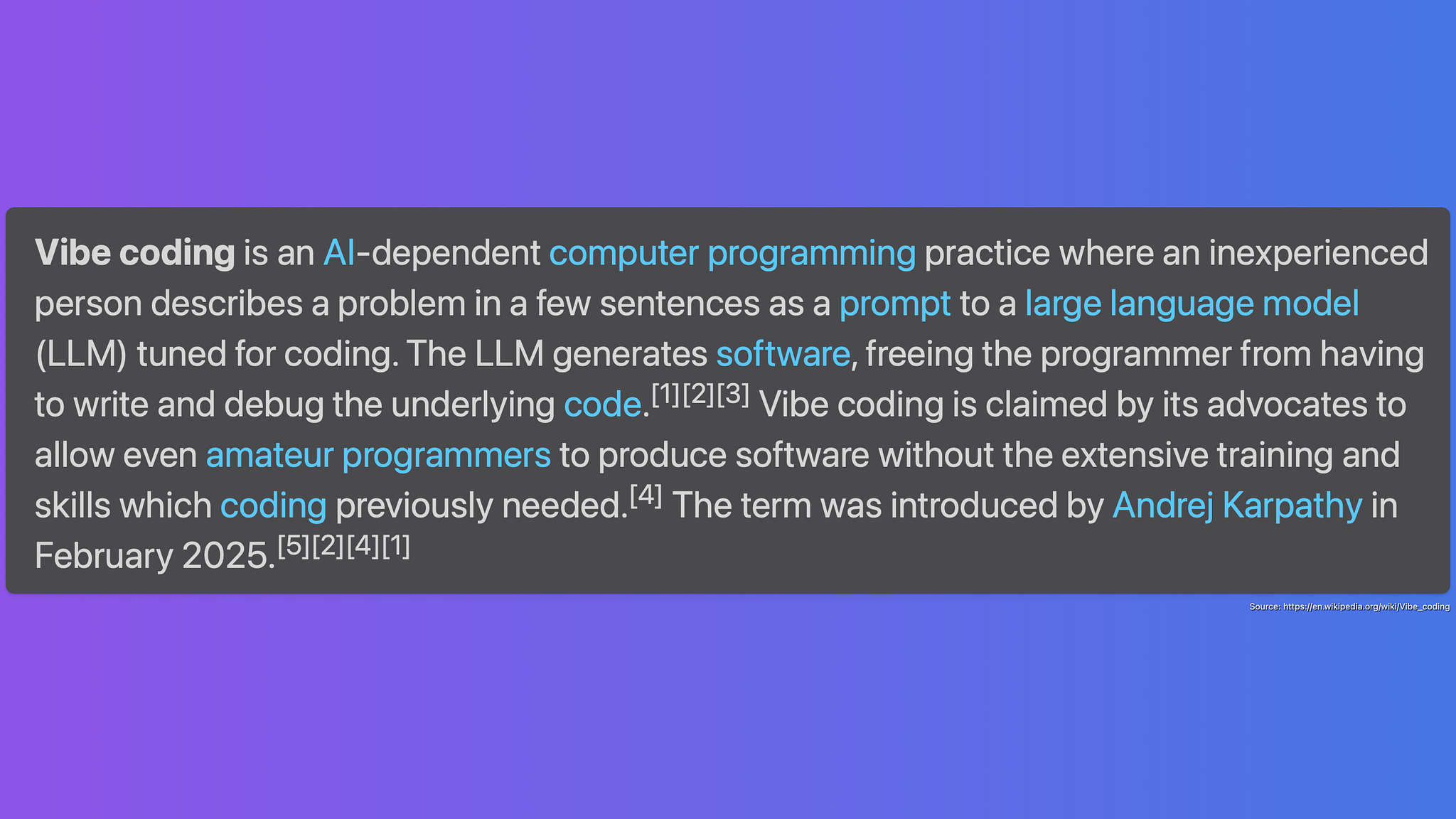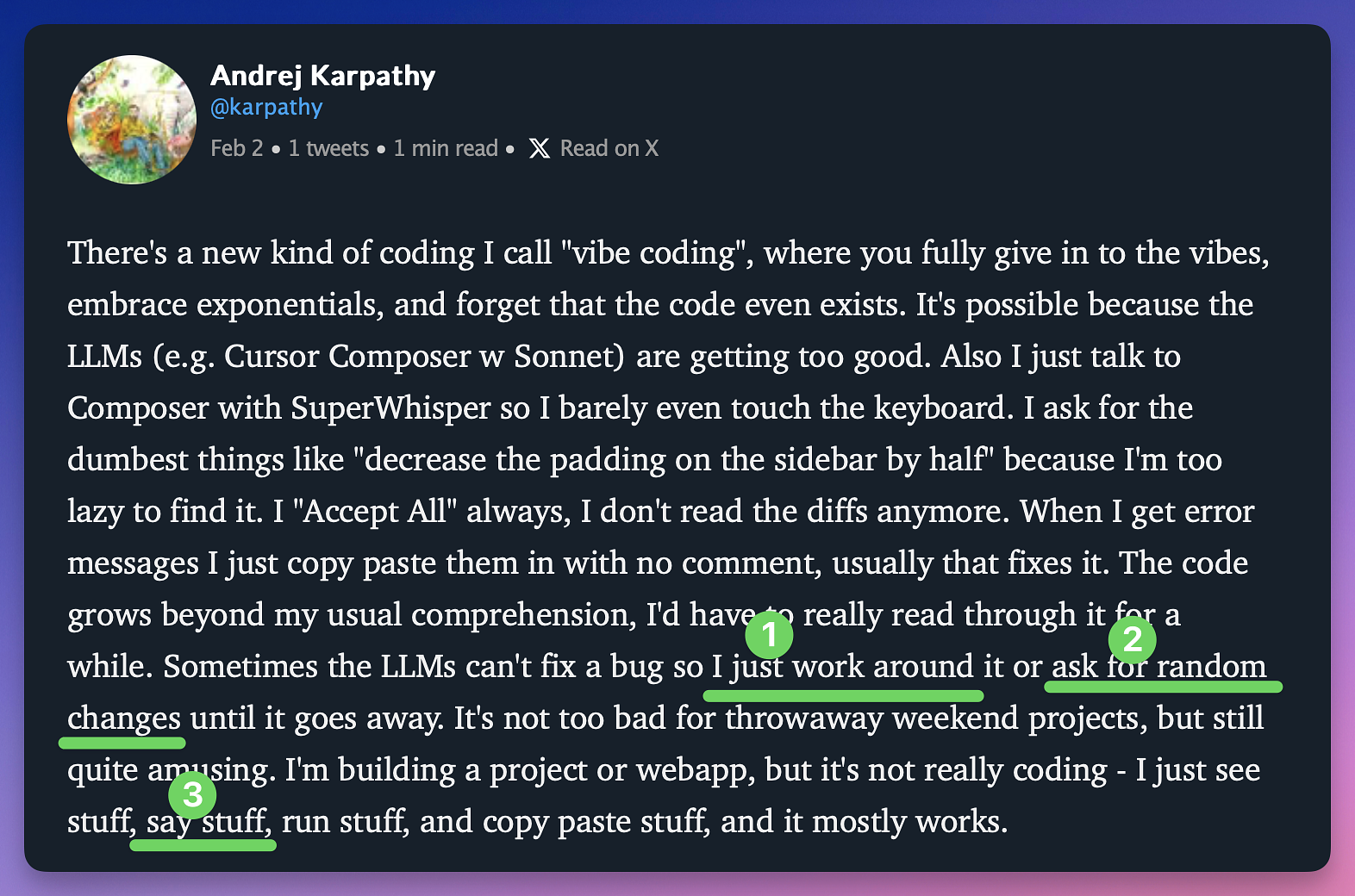About vibe coding
I am very close to putting this "vibe coding" phrase into ignore lists. But someone saying that Ruby is not fit for vibe coding made me look into what this term is.
Andrej Karpathy introduced this in a post on social media:

But it seems to have evolved into something that is now described more close to the following definition (source: Wikipedia)
> an inexperienced person describes a problem in a few sentences as a prompt to a large language model (LLM) tuned for coding.

Now let's take a look back at what Andrej wrote and try to add two contexts to this:
- He is an expert in LLMs - notice the term expert here
- Let's focus a bit on some things I marked from his post

Here are some questions I would like to ask myself:
- Look at 1️⃣ When he says I just work around it, how close is he to an amateur programmer or someone without any experience in coding? Could it be possible for things to look easy to work around because he has so much experience?
- Look at 2️⃣ When he says, "or I ask for random things," how random are those things, and how much of this know-how/experience is he asking for random things?
- And now let's look at the last part, 3️⃣ - where he says, "I just <...> say stuff," and again, ask yourself when he says stuff to an LLM, how similar are his prompts/queries to a random person without any technical knowledge
This might be an expert blind spot for him and us, as we haven’t considered how much his expertise makes things seem simple.
I am not saying this cannot happen, but seeing this vibe coding suddenly
everywhere triggered my skepticism inside.
It is just a thought; I
am not saying this is not working or is not real. We might be in the
beginning of something great.
